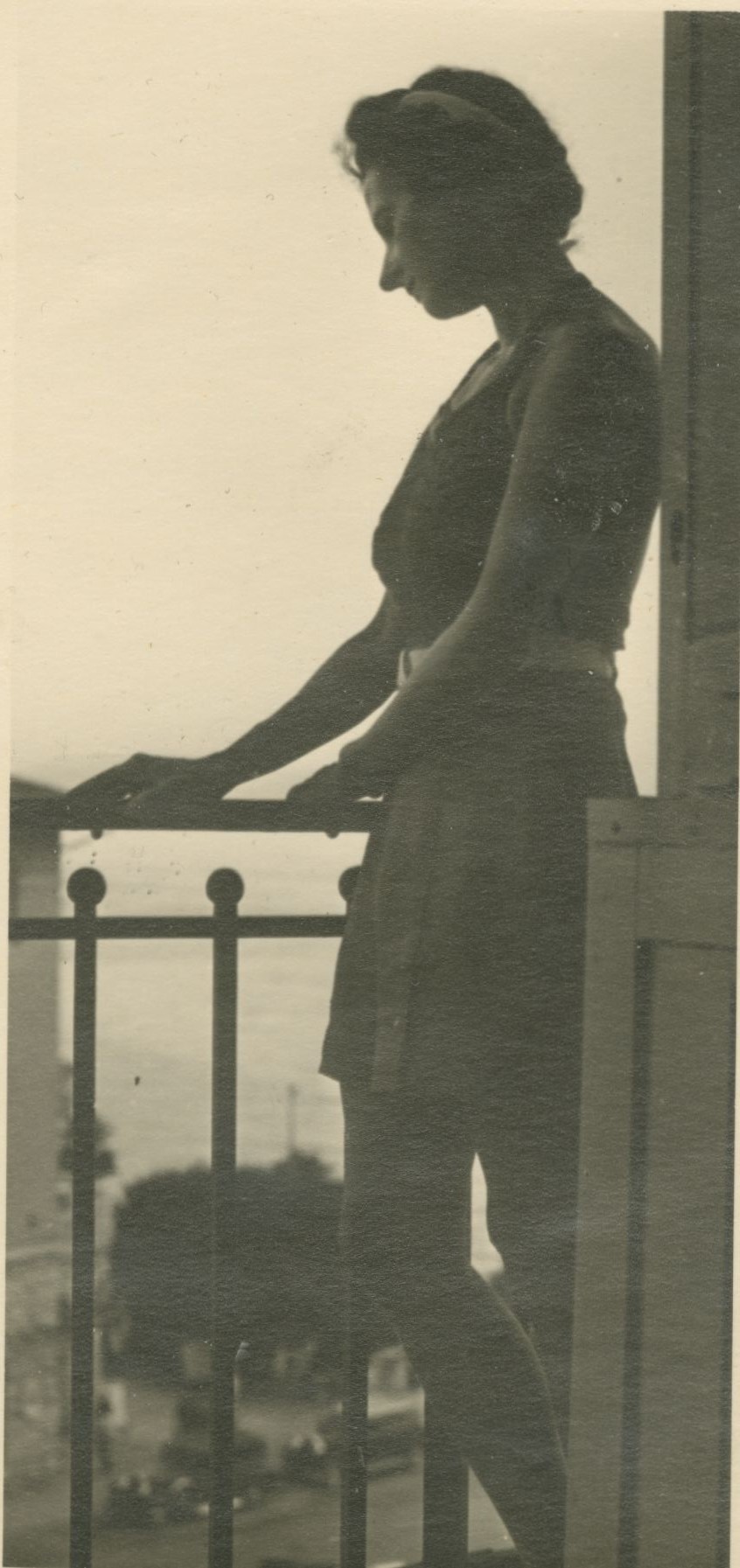3 poems by Antonia Pozzi translated from Italian by Leisa Loan
Santa Maria in Cosmedin
O dolce e pallido il tuo altare
Santa Maria in Cosmedin
sotto la rossa terra
ed i neri cipressi
del Palatino-
piccola chiesa nata
per infiorarsi
all’alba
di serenelle bianche –
nata per le nozze
dell’anima
o per le esequie di un bimbo…
Custodisci ora tu
nella penombra cerea
dei tuoi marmi
questo bambino morto ch’io reco –
questo povero
sogno –
consacramelo tu
sul tuo
altare –
Roma, 8 aprile 1933
Santa Maria in Cosmedin
Oh how sweet and pale is your altar
Santa Maria in Cosmedin
under the red earth
and black cypresses
of the Palatine –
a small church born
to adorn itself
at dawn
with white lilacs –
born for the marriage
of the soul
or for the funeral of a child…
Guard now
in the dim half-light
of your marbles
this dead child that I bear –
this poor
dream
consecrate it to me
on your
altar –
Rome April 8, 1933
Tempo
I
Mentre tu dormi
le stagioni passano
sulla montagna.
La neve in alto
struggendosi dà vita
al vento:
dietro la casa il prato parla,
la luce
beve orme di pioggia sui sentieri.
Mentre tu dormi
anni di sole passano
fra le cime dei làrici
e le nubi.
II
Io posso cogliere i mughetti
mentre tu dormi
perché so dove crescono.
E la mia vera casa
con le sue porte e le sue pietre
sia lontana,
né io più la ritrovi,
ma vada errando
pei boschi
eternamente—
mentre tu dormi
ed i mughetti crescono
senza tregua.
28 maggio 1935
Time
I
While you sleep
the seasons pass
on the mountain.
The snow melting above
gives life
to the wind:
behind the house the meadow speaks,
the light
drinks the trace of rain on the paths.
While you sleep
years of sun pass
between the tops of the larches
and the clouds.
II
I can gather lilies
while you sleep
because I know where they grow.
May my real home
with its doors and its stones
be so far away
that I never find it again,
but go roaming about the woods
forever—
while you sleep
and the lilies grow
without respite.
May 28, 1935
Smarrimento
Novembre
non è tornato:
ma i passeri
a mezzo giorno gridano
sugli alberi bagnati
come fosse per venir sera.
Qualcuno si è scordato
di rialzare i pesi
dell’orologio:
l’uccelino dice cucù
due volte soltanto,
poi resta sulla porticina
a guardare
il pendolo che a piccole scosse
si ferma.
Adesso
non so più
le ore.
21 febbraio 1935
Swoon
November
has not returned:
but the sparrows
at noon cry
on the wet trees
as if evening were coming.
Someone forgot
to lift the weights
of the clock:
the little bird says cuckoo
only twice,
then stops on the little porch
watching
the pendulum
which stops with small
shocks.
Now
I no longer know
the hours.
February 21, 1935
Leisa Loan is a poet, translator, editor, and educator from Boston, Massachusetts. She is pursuing a PhD in Critical Poetics at the University of Houston where she is a C. Glenn Cambor Fellow and a Cynthia Woods Mitchell Center Fellow of interdisciplinary arts. Her poetry and translations have been published or presented in Italy and the U.S. Her award-winning scholarship and translation work on Antonia Pozzi was recently showcased in Biella, Italy by Silvy Bassanese Arte Contemporanea. She currently teaches poetry at the University of Houston and serves as the Digital Editor for Gulf Coast Journal.

Antonia Pozzi was a poet and photographer born in Milan in 1912. An impassioned lover of literature, nature, and mountain climbing, Pozzi wrote over 300 poems during her short lifetime, however, she did not live to see any of them published. After taking her own life in 1938, a small collection of her poems was posthumously published by her father, with severe edits and changes made to the work. These redactions largely stripped the work of its core sensuality and the piercing sense of struggle of a young woman questioning her faith and recording her rich and complex emotional life during the rise of fascism in Italy in the 1920s and 30s. These translations reflect the original, unedited versions of her poems collected in 1989 by dedicated editors Alessandra Cenni and Onorina Dino.

Poet and translator Charles Simic once said that “to translate is to experience the difference that makes each language distinct, but equally to draw close to the mystery of the relationship between word and thing, letter and spirit, self and the world.” It is a supreme act of engagement with a literary text. With the Translator’s Page, we aim to feature the essential work of contemporary translators working across different languages and time periods.
—Maja Lukic, Curator of the Translator’s Page
Maja Lukic holds an MFA in poetry from the MFA Program for Writers at Warren Wilson College. Her work has appeared or is forthcoming in Narrative, A Public Space, The Adroit Journal, Bennington Review, Image, Sixth Finch, Copper Nickel, the Slowdown podcast, and elsewhere. Currently, she serves as curator of the Translator’s Page and Board member of Four Way Books.